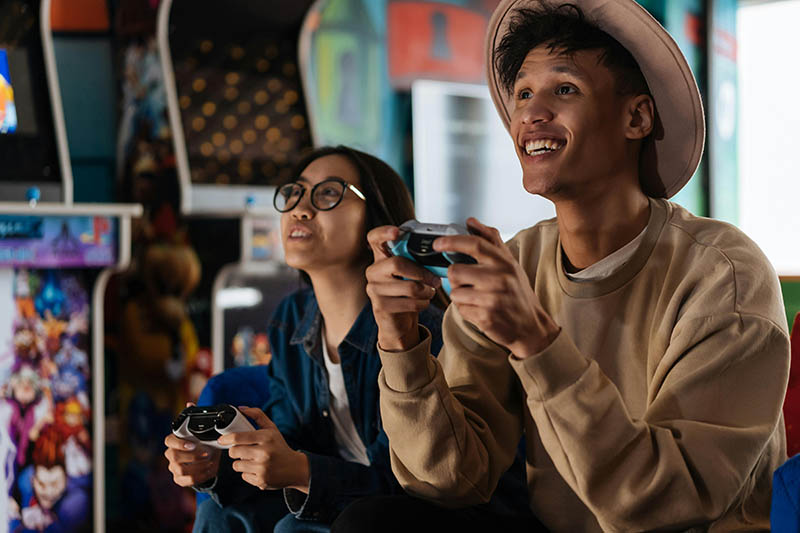
How to Ensure Accurate English to Indonesian Game Localization: Quality Control Measures
Are you a game developer who has just built an amazing game and wants to translate it into Indonesian because you know this country holds a promising gaming market? Well, among the things that really should not be overlooked is making sure that the translation is accurate and relevant through a comprehensive process of English to Indonesian game localization.
You need to know that when your game is translated into another language, including Indonesian, it will be different. It will be messy—lots of typos, broken layouts, grammatical errors, inflexible translations, missing context, etc.
To avoid the bad things above, carry out quality control on the localization of your English game, which will be discussed further here!
Ensuring Accuracy in English to Indonesian Game Localization: Key Considerations
To ensure accuracy in localizing English games to Indonesian, pay attention to the following things:
1. Accuracy In-Game Text Translation
Have you ever played a game and felt like the translation was strange or didn't connect? This happened because the translation was less accurate. Imagine if you were enjoying playing a game and suddenly encountered confusing instructions. This can ruin your gaming experience, right?
So, it is not an exaggeration to say that in-game text is the foundation of any successful gaming experience. Accuracy in text translation must be taken seriously when you want to ensure the best quality in English to Indonesian game localization.
This would include menus, subtitles, dialogue, and instructions within the game. Here, you have to ensure that the translation will be linguistically correct and relevant to the context, unlike word-for-word translation. For example, when ensuring the accuracy of the translation of a funny dialogue from English to Indonesian.
Western humor is known for its characteristics that often involve satire, sarcasm, irony, and a tendency to be self-critical. Meanwhile, in Indonesia, jokes related to family, marriage, and demeaning other people may be sensitive and often misunderstood, considering the importance of social status in communication in Indonesia. Therefore, it is important to adapt it to cultural and social sensitivities in Indonesia so that the translated version remains as funny as the original version.
2. Audio Localization
When talking about English to Indonesian game localization, one thing you shouldn't miss is accuracy in audio localization. Because good audio can make the gaming experience much more immersive and enjoyable.
Audio localization isn't just about translating spoken dialogue. It also includes voiceovers, ambient sound effects, background music, and other audio elements. To ensure that the audio produced is appropriate and pleasing to the ear, you need to pay extra attention to several things.
First, casting the talents. Choosing the right voice actor can make the characters in the game sound more alive and authentic. Second, adapt the script. The dialogue script must be adapted to suit the Indonesian cultural context. Additionally, lip-syncing is also important. Imagine if the character's lip movements were not in sync with the sound that came out. It must be really annoying! So, make sure the lip-sync is done well so that it looks natural. Lastly, audio mastering. Audio mastery must be done so that the sound quality is maintained and pleasant to hear on various devices.
Using the voice talents of native Indonesian speakers can also improve the quality of localization. They can add the right nuances and emotions, making the gaming experience more emotional and immersive.
3. Appropriateness and Relevance of Culturalization
Accuracy and relevance in culturalization are also important in the process of English to Indonesian game localization. Culturalization is the process of assessing and adapting game content to match the cultural nuances of the target audience. There are two main approaches to culturalization: proactive and reactive.
A proactive approach involves planning ahead and adjusting content before the game is released. This means you not only translate the text but also ensure the game content aligns with Indonesian cultural values and preferences.
A reactive approach, on the other hand, involves adjusting content based on feedback from players or changes in culture. For example, if there are elements in the game that Indonesian players find offensive, you need to quickly adjust the content. This could be dialogue, symbols, or visual elements that you may not have previously realized were sensitive. For example, the one-eye symbol in Western cultures may be taken for granted and even printed on their currency. However, in Indonesia, this symbol is often considered to be deviant and negative.
By combining proactive and reactive approaches, you can ensure game content is not only interesting but also sensitive and respectful of local culture. This is important for building strong bonds with local audiences and ensuring your game is well-received.
How to Verify the Accuracy of English to Indonesia Game Localization?

Localization is more than just translation; it requires cultural aspects, emotions, and small details that can make your game memorable with the local audiences. Here are some tips to ensure the accuracy of the game localization project:
1. Collaborate with Indonesian Language Localization Experts
An effective and strategic step for accurate English to Indonesian game localization is to work with Indonesian language localization experts. Localization experts will not only help you translate but also understand cultural nuances and context.
They can ensure the core content of your game remains intact in all languages. For example, when translating and localizing game descriptions in app stores, localization experts can help convey the message you want to convey while ensuring that these descriptions are not only linguistically accurate but also appealing to players.
2. Capture Content Emotions across Languages
Emotions are an important element in games. Capturing the emotions of cross-language content means ensuring that Indonesian players can feel the same emotions when playing your game as players in the game's home country.
For example, in the monster defeating scene, you have to make sure that the player in Indonesia feels as excited and satisfied as the player in England. How? You need to make sure that the dialogue, background music, and sound effects are all in sync to create the desired atmosphere. Maybe there are idioms or expressions that need to be changed to make them more relevant to Indonesian culture.
3. Pay Attention to the Details
Attention to detail is the key to successful localization. Make sure that any translated text aligns with the expectations of the target culture. For example, the use of greetings in Indonesian must be correct, as well as adapting the names of characters or places.
There are names that may sound strange or even have negative meanings in Indonesian. Make sure to double-check that all names and terms used match and do not cause misunderstandings.
4. Be Wary of Words That Seem Familiar
In the process of English to Indonesian game localization, be wary of words that seem familiar but have different meanings. This is called "false friends" in the world of translation. These words look similar in two languages, but their meanings can be very different.
For example, the word "event" in English can mean "event" or "occurrence." However, in Indonesian, "event" is more often used for special events such as concerts or festivals. If in your game there are missions called "events", make sure to choose the right word so players don't get confused.
Another example is "actual." In English, "actual" means "really" or "actually." But in Indonesian, "actual" is more often used to describe something that is happening now. So, be careful with words that look similar but have different meanings.
5. Recognize Potential Cultural Issues
Cultural misunderstandings are often the main cause of failure in localizing English games to Indonesia. But don't worry! You can overcome this by implementing the following tips:
- For in-depth research on culture, traditions, and taboos in Indonesia, you can read books, articles, or even games made by Indonesian developers.
- Ask for advice from native speakers or consult an Indonesian game localization company. They can provide in-depth insight into the habits, customs, and norms that apply in this culturally rich country.
- To increase inclusivity and avoid misunderstandings, use neutral vocabulary and terminology.
- Gathering a group of QA (Quality Assurance) testers with Indonesian cultural backgrounds. These QA testers can help you evaluate whether your game content feels authentic and relevant to local culture.
6. Create a Solid, Comprehensive Style Guide
A solid, comprehensive style guide is key to ensuring consistency and accuracy in your game localization. Without a style guide, you may find that the translation of one part of the game is inconsistent with another part. In developing a style guide, you should include:
Tone and Voice: This determines how your in-game text should sound. Do you want a formal, casual, or perhaps upbeat tone? A style guide will help the localization team understand the desired style and apply it consistently. Terminology: For example, specific in-game terms such as "quest" or "boss fight" must be translated in a precise and consistent way. A style guide will provide direction on what terms to use and how.
Other Linguistic Elements: These include writing styles, date formats, and how numbers are pronounced. All these details ensure that the gaming experience remains cohesive and meets the expectations of players in Indonesia.
Conclusion
The accuracy of English to Indonesian game localization has a big impact because it is closely related to the playing experience. When your game manages to create a fun and satisfying gaming experience in the player's native language, in this case Indonesian, you are building the foundation for achieving high ratings and positive reviews. These positive reviews then illustrate that you use good translation practices in your games